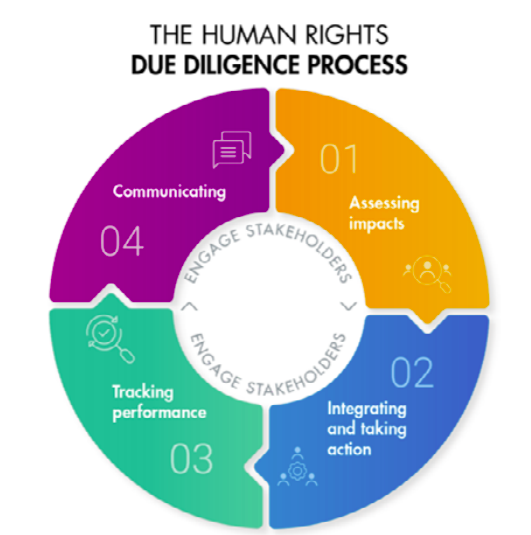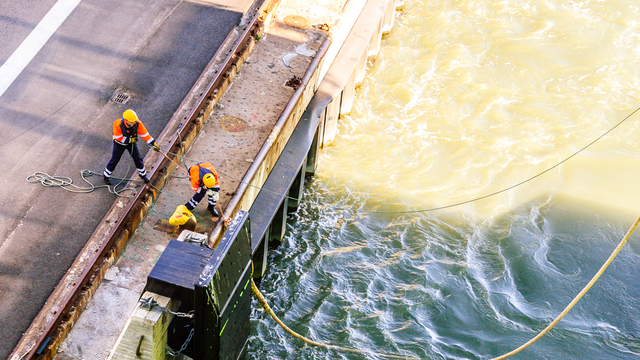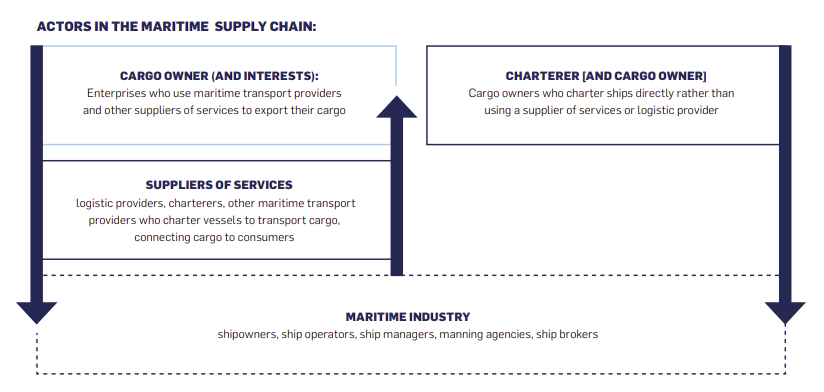Amid a human rights violation shaped through the crew change crisis, four UN bodies launched a Human Rights Due Diligence Tool for cargo owners and charterers, which contains a wide-ranging set of guidance to help enterprises protect the human rights of seafarers.
The Human Rights Due Diligence Tool is a joint initiative of the UN Global Compact (UNGC), the Office of the High Commissioner for Human Rights (UN Human Rights), the International Labour Organization (ILO) and the International Maritime Organization (IMO), and aims to ensure that seafarers have their rights safeguarded in areas such as physical and mental health, access to family life and freedom of movement.
This tool is an important step forward, providing a practical approach for cargo owners, charterers and logistic providers to consider the human rights of seafarers and ensure they are put first and foremost as they work to deliver the goods that people need and want,
…said IMO Secretary-General Kitack Lim.
The Due Diligence Tool for cargo owners and charterers has been issued amid concerns that the number of crew stranded at sea due to COVID-19 restrictions could surge from the current level of 200,000, potentially returning to the peak of 400,000 seafarers at the height of the crew change crisis in September 2020.
[smlsubform prepend=”GET THE SAFETY4SEA IN YOUR INBOX!” showname=false emailtxt=”” emailholder=”Enter your email address” showsubmit=true submittxt=”Submit” jsthanks=false thankyou=”Thank you for subscribing to our mailing list”]
In particular, UN agencies have expressed concern at reports of seafarers working beyond the 11-month maximum period of service onboard set out by the MLC, as well as reports that companies engaged in international trade are avoiding chartering vessels where a crew change is due, with some demanding “no crew change” clauses in charter party agreements.
The mental and physical wellbeing of seafarers must be a priority and this tool is an important step in building awareness of how to address human rights abuses in the maritime sector. It sends a powerful message of the importance of incorporating maritime workers in due diligence mapping to ensure that adverse human rights impacts are identified, prevented, mitigated and addressed,
…added Sanda Ojiambo, Executive Director and CEO of the UN Global Compact.
The tool provides guidance and a checklist for cargo owners, charterers and logistic providers to conduct human rights due diligence across their supply chains to identify, prevent, mitigate and address adverse human rights impacts for seafarers impacted by the ongoing COVID-19 crisis.
On the occasion of the launch of this new human rights due diligence toolkit, ITF declared that now the world’s biggest brands have no excuse not to audit their supply chains and issue directives to suppliers on crew change. ITF’s Secretary General, Stephen Cotton highlighted that ”upholding human rights within supply chains is a social responsibility of companies, and was increasingly a legal requirement for them.” These health checks will now assist companies to understand their human rights due diligence (HRDD) obligations and address violations in their supply chains. Stephen Cotton also commented:
For far too long, shipping has been a human rights blind spot for global brands. Responsible companies in today’s world want to understand how they or partners in their supply chains might be violating human rights. That’s why in the midst of the crew change crisis, the launch of this tool couldn’t be more timely
ITF is still being alerted to charterers and sub-charters using “no crew change” clauses and other more sophisticated means to avoid performing crew changes, said David Heindel, chair of the ITF Seafarers’ Section. Cargo owners needed to set out their expectations to maritime transport suppliers, he said.
This tool sets out the questions companies need to be asking those shipping their goods. It makes clear the directives companies can give to suppliers to allow diversions, and to ensure that “no crew change” clauses are eradicated from their supply chains.
…said David Heindel, chair of the ITF Seafarers’ Section.
The tool is divided into three parts:
- Part one is directed to cargo owners and charterers who use maritime transport, and concerns seafarers’ labour rights, and health and safety conditions in the context of the COVID-19 pandemic.
- Part Two: concerns additional actions directed specifically to cargo owners, who use maritime transport providers.
- Part Three: concerns additional directed specifically to charterers, who have contractual relations with shipping companies.
Measures recommended as part of the tool include:
- Ensure individual and collective action is taken to address concerns around seafarers’ rights, including using leverage to highlight concerns to Governments and maritime transport providers.
- Seek written assurance that no seafarers have been on board for a continuous period of more than the 11 months maximum period of service derived from the MLC, 2006.
- Verify with business partners that seafarers are not having to work beyond the expiration of their contracts without their willing consent, as to do so could be considered forced labour.
- Provide seafarers with adequate personal protective equipment (PPE).
- Verify with business partners that the cost of any quarantine obligations before or after joining the ship are not borne directly or indirectly, in whole or in part, by the seafarer.
- Abide by the legal obligation to grant seafarers access to medical care ashore, for instance by permitting diversions for the purpose of medical care.
- Use the IMO recommended framework of protocols to ensure safe crew changes during the COVID-19 pandemic, as well as cascading this to any relevant partners.
- Accept route deviation requests from shipping companies for the purpose of facilitating crew changes, and relay this expectation to business partners.
- Verify that vessel operators are limiting any avoidable crew contract extensions.

As the ILO Committee of Experts said in its general observation last December, it is precisely at times of crisis that the protective coverage of the MLC, 2006, assumes its full significance and needs to be most scrupulously applied. This is even more so given that the Convention contains only minimum standards for the protection of seafarers’ rights. The ILO has urged Governments to ensure the protection of seafarers’ rights, and welcomes this initiative that will help businesses to play their part in this collective effort,
…noted Guy Ryder, ILO Director-General.
The UN Guiding Principles on Business and Human Rights require that companies identify whether they are involved with the crisis, including through their business relationships, and take any necessary measure to seek to address the situation,
…said Michele Bachelet, High Commissioner for Human Rights.
The move follows the launch by the Global Maritime Forum of the Neptune Declaration Crew Change Indicator, which aims to provide up-to-date information on the impact of the crew change crisis.






























































That was about time for the Shipping/Maritime Industry to get their act together.
Thrilled to note SAFETY4SEA’ continued ode to safety all those long past years. Congratulations!